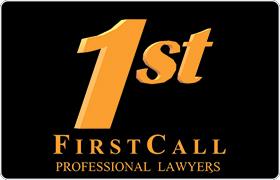Camp Pendleton Misdemeanor Lawyer, California
Sponsored Law Firm
-
 x
x

Click For More Info:
-
First Call Legal Services Corporation
530 Hacienda Dr Unit 101B Vista, CA 92081» view mapCriminal Defense Effective. Versatile. Decisive.
Our vision is to build strong, trust-based client relationships from our first handshake. Every challenge is an opportunity. You need the RIGHT PEOPLE for the job you want done.
760-690-3999
Jacob Prescott Austin
✓ VERIFIEDCriminal, Felony, Misdemeanor, DUI-DWI, White Collar Crime
Over the years I have worked on cases spanning many areas of law such as marriage dissolution issues, transferring trademarks, elder abuse, financial ... (more)
Peter Francis Iocona
✓ VERIFIEDCriminal, DUI-DWI, Domestic Violence & Neglect, Felony, Misdemeanor
Rated by "Super Lawyers" - Orange County's "Best" or "Top-Rated" DUI Defense Firm
Rated by Super Lawyers, Peter F. Iocona - Attorney at Law, and his partners, Alan Castillo and Marlo Cordero, formed "The SoCal Law Network" and selec... (more)
Richard L Duquette
Litigation, Misdemeanor, Felony, DUI-DWI, Criminal
Status: In Good Standing Licensed: 41 Years
Keith L. Allen
Divorce & Family Law, Criminal, DUI-DWI, Misdemeanor
Status: In Good Standing Licensed: 27 Years
FREE CONSULTATION
CONTACTMark Raymond McDonald
State Appellate Practice, White Collar Crime, Misdemeanor, Felony
Status: In Good Standing Licensed: 34 Years
FREE CONSULTATION
CONTACT First Call Legal Services Vista, CA
First Call Legal Services Vista, CA Practice AreasExpertise
Practice AreasExpertise


